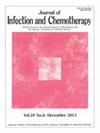抗菌药物管理计划在医疗保健中的全球影响:有效性、成本效益和实施策略的总括性审查
IF 1.5
4区 医学
Q3 INFECTIOUS DISEASES
引用次数: 0
摘要
微生物管理计划(asp)通过优化抗生素使用和改善患者预后,在减轻全球抗菌素耐药性(AMR)威胁方面至关重要。尽管来自高收入国家的现有证据,但由于资源限制和实施不均,低收入和中等收入国家(LMIC)仍然面临挑战。本综述综合了来自系统综述的证据,以评估不同医疗保健环境中asp的有效性、成本效益、实施障碍和促进因素。方法遵循PRIOR指南和PROSPERO注册(ID: CRD42024541821),综合检索PubMed、Scopus、Cochrane Library、Epistemonikos、谷歌Scholar和ScienceDirect,检索截止至2024年7月。采用标准化表格提取数据,采用AMSTAR-2工具评估评价的方法学质量。考虑到研究设计、结果和ASP干预措施的异质性,采用叙事综合。结果纳入的55篇综述表明,asp持续减少了抗生素的使用,减少幅度高达91%,并提高了对处方指南的依从性。据报道,主要病原体(如MRSA和产生esbl的生物体)的耐药率显著下降。虽然对死亡率和住院时间的影响是可变的,但大多数研究证实了大量的成本节约(抗生素支出减少高达82%)。实施障碍主要包括有限的资源、不足的数据基础设施和处方阻力,而强有力的组织支持和多学科合作成为关键的促进因素。结论asp在不同的医疗环境中具有临床效果和经济优势。解决当地障碍和利用现有基础设施的量身定制战略对于可持续实施至关重要。未来的研究应侧重于标准化的评估方法和长期影响,以进一步优化全球ASP的采用。本文章由计算机程序翻译,如有差异,请以英文原文为准。
Global impact of antimicrobial stewardship programs in Healthcare: An umbrella review of effectiveness, cost-efficiency, and implementation strategies
Background
Antimicrobial Stewardship Programs (ASPs) are vital in mitigating global threat of antimicrobial resistance (AMR) by optimizing antibiotic use and improving patient outcomes. Despite available evidence from high-income countries, challenges remain in low- and middle-income countries (LMIC) due to resource constraints and heterogeneous implementation. This umbrella review synthesizes evidence from systematic reviews to assess the effectiveness, cost-effectiveness, and implementation barriers and facilitators of ASPs across diverse healthcare settings.
Methods
Following PRIOR guidelines and PROSPERO registration (ID: CRD42024541821), we conducted comprehensive search of PubMed, Scopus, Cochrane Library, Epistemonikos, Google Scholar, and ScienceDirect up to July 2024. Data were extracted using standardized form and methodological quality of reviews was assessed with AMSTAR-2 tool. Given heterogeneity in study designs, outcomes, and ASP interventions, narrative synthesis was employed.
Results
The included 55 reviews demonstrated that ASPs consistently reduce antibiotic consumption—achieving reductions up to 91 %—and improve adherence to prescribing guidelines. Significant declines in resistance rates for key pathogens, such as MRSA and ESBL-producing organisms, were reported. Although effects on mortality and hospital length of stay were variable, most studies confirmed substantial cost-savings (up to 82 % reduction in antibiotic expenditures). Implementation barriers primarily included limited resources, insufficient data infrastructure, and prescriber resistance, while strong organizational support and multidisciplinary collaboration emerged as key facilitators.
Conclusion
ASPs are both clinically effective and economically advantageous in diverse healthcare settings. Tailored strategies that address local barriers and leverage existing infrastructure are essential for sustainable implementation. Future research should focus on standardized evaluation methods and long-term impacts to further optimize ASP adoption globally.
求助全文
通过发布文献求助,成功后即可免费获取论文全文。
去求助
来源期刊

Journal of Infection and Chemotherapy
INFECTIOUS DISEASES-PHARMACOLOGY & PHARMACY
CiteScore
4.10
自引率
4.50%
发文量
303
审稿时长
47 days
期刊介绍:
The Journal of Infection and Chemotherapy (JIC) — official journal of the Japanese Society of Chemotherapy and The Japanese Association for Infectious Diseases — welcomes original papers, laboratory or clinical, as well as case reports, notes, committee reports, surveillance and guidelines from all parts of the world on all aspects of chemotherapy, covering the pathogenesis, diagnosis, treatment, and control of infection, including treatment with anticancer drugs. Experimental studies on animal models and pharmacokinetics, and reports on epidemiology and clinical trials are particularly welcome.
 求助内容:
求助内容: 应助结果提醒方式:
应助结果提醒方式:


